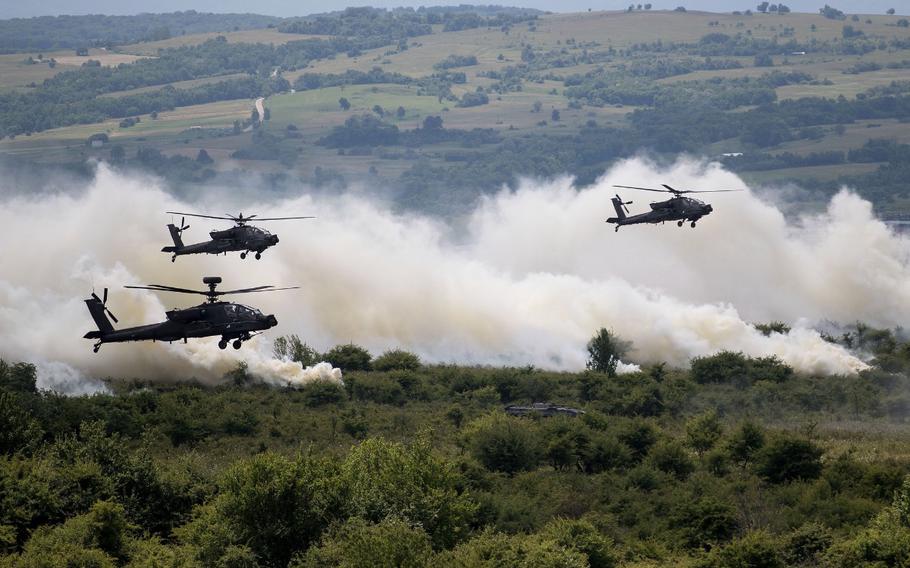
Helicopters take part in NATO exercise Noble Jump in Romania in 2017. Noble Jump 23 kicked off April 26, 2023, in Sardinia, Italy, with elements of NATO's quick reaction spearhead force. Approximately 2,200 multinational troops will take part in the exercise being hosted by Italy. (Jasper Verolme/Mediacentrum Defensie)
Elements of NATO’s quick-reaction spearhead force are being put through their paces this week in Sardinia, where a series of drills is intended to showcase its fighting capabilities.
The unit is part of the NATO Response Force and was activated for the first time in its history after the 2022 Russian invasion of Ukraine.
The roughly 2,200 troops participating in Noble Jump 23 will spend about two weeks drilling on ranges on the Mediterranean island, NATO’s Joint Force Command in Naples said in a statement Wednesday.
The exercise is “a statement of our resolve and our capabilities,” Navy Capt. William Urban, spokesman for the command, said in the statement.
The exercise will involve personnel from several NATO countries’ militaries, the statement said.
The spearhead unit is a 5,000-strong force carved out of NATO’s larger response force of some 40,000 troops.
The unit was formed in the aftermath of Russia’s initial 2014 military incursion in Ukraine, but in the years afterward was involved mainly in periodic training events. That changed one day after Russia’s Feb. 24, 2022, full-scale invasion of Ukraine.
The decision to mobilize the so-called Very High Readiness Joint Task Force, led by the French at the time, amounted to a political victory for the NATO alliance, which had long faced questions about whether allies could muster unanimous support for such a deployment in a pinch, given varied threat perceptions of Russia in the alliance.
NATO’s Naples command on Wednesday said its response force was drilling to ensure that it can respond to an array of crises, ranging from combat situations to peacekeeping missions.
“The Noble Jump 23 exercise demonstrates that NATO is united, ready and willing to defend allies,” Urban said.
The German army is currently leading the multinational task force. It took command in January amid uncertainty about its ability to carry out the mission.
At the time, reports emerged that armored vehicles to be assigned to the quick reaction force were in disrepair, with some unable to function.
Former Defense Minister Christine Lambrecht, in the days before the Germans were set to take command, called the developments a “major setback” but one the army could overcome to fulfill its NATO commitments.